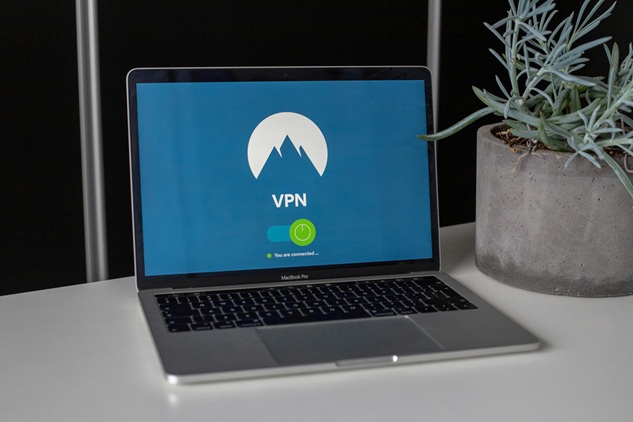Jobs in Cybersecurity: More Demanding and Lucrative Than Ever
In the ever-expanding digital world, one of the most explosive career domains today is cybersecurity. With cyber threats escalating at an alarming rate, the demand for cybersecurity professionals has soared globally. From startups and corporations to governments and educational institutions, everyone is on the lookout for skilled cybersecurity experts who can guard data, networks, and infrastructure from malicious actors.
This massive surge in demand isn’t surprising—after all, in a world where everything from banking and healthcare to personal conversations and national security happens online, safeguarding digital assets is no longer a choice, it’s a necessity. This article delves deep into the reasons behind this demand, the range of roles available, essential skills required, educational pathways, growth prospects, and the incredible earning potential that makes cybersecurity one of the most lucrative careers today.
Why Cybersecurity is One of the Fastest-Growing Careers
According to recent industry reports, cybersecurity is growing at a rate faster than most other technology fields. As mentioned in the blog by Pervin Malhotra, this surge is being driven by several key factors:
- Global digital transformation across all industries.
- Increased volume and sophistication of cyber attacks.
- Expansion of remote work environments post-pandemic.
- Implementation of strict data privacy laws and compliance regulations.
- Shortage of qualified cybersecurity professionals worldwide.
From ransomware attacks on hospitals to security breaches in government agencies and even social media account hacking, cybersecurity threats are real, frequent, and damaging. As a result, organizations now consider cyber readiness a boardroom-level priority. This shift has given rise to one of the most recession-proof and in-demand career paths—cybersecurity.

Who Can Make a Career in Cybersecurity?
One of the great things about cybersecurity is its accessibility to a wide range of academic backgrounds. Whether you are a computer science graduate, an engineering student, a BSc IT professional, or even someone from a different background with a passion for tech—there’s a place for you in cybersecurity.
The article shares a case where a BTech graduate wanted to pivot into cybersecurity. The answer? Yes, it’s possible. Thanks to the rising demand, there are now specialized courses, certifications, and bootcamps that help transition into this field—even without a formal degree in cybersecurity.

Educational Pathways
Formal degrees in the following areas are helpful:
- Computer Science
- Information Technology (IT)
- Electronics and Communication
- Cybersecurity (BSc/MSc, BTech/MTech in Cybersecurity)
- Networking and Systems Engineering
But what matters most is practical knowledge and hands-on skills. For instance, even arts or commerce students can enter this field by taking certifications and practicing skills like ethical hacking, network monitoring, or security auditing.
Top Cybersecurity Job Roles
As cybersecurity has evolved, so have its job roles. From defense and threat analysis to policy-making and ethical hacking, here are some of the most in-demand positions:
- Security Analyst: Monitors systems for suspicious activity and responds to threats.
- Ethical Hacker: Conducts penetration testing to find vulnerabilities before hackers do.
- Information Security Manager: Oversees a company’s security strategy and policy implementation.
- Security Software Developer: Builds tools and programs to protect systems.
- Cyber Forensics Analyst: Investigates cybercrimes and data breaches.
- Cloud Security Specialist: Secures data hosted on cloud platforms like AWS, Azure, and GCP.
- Network Security Engineer: Maintains firewalls, VPNs, and intrusion detection systems.
- Cybersecurity Consultant: Advises companies on risk assessment and mitigation strategies.
Each of these roles requires a unique mix of technical knowledge and problem-solving skills. The best part? You can start small and keep upgrading your career by learning progressively.

Certifications That Boost Your Cybersecurity Career
Certifications not only validate your skills but also enhance your job prospects and salary packages. Some of the most recognized cybersecurity certifications include:
- CEH (Certified Ethical Hacker)
- CISSP (Certified Information Systems Security Professional)
- CompTIA Security+ and Network+
- CCSP (Certified Cloud Security Professional)
- CISA (Certified Information Systems Auditor)
- OSCP (Offensive Security Certified Professional)
- ISO/IEC 27001 Certification
- GIAC Certifications (Global Information Assurance Certification)
Most of these can be pursued online and come with flexible schedules. Completing even one or two of these credentials can open up high-paying roles globally.

Practical Skills Matter More Than Degrees
The following blog rightly highlights the importance of practical skills in cybersecurity. You should focus on acquiring:
- Knowledge of operating systems (especially Linux)
- Understanding of networking protocols
- Ability to read/write scripts (Python, Bash, PowerShell)
- Experience with firewalls, IDS/IPS, SIEM tools
- Cloud computing basics (AWS, Azure security modules)
- Hands-on practice with tools like Wireshark, Metasploit, Kali Linux
- Real-world scenario labs or CTF (Capture the Flag) challenges
Platforms like TryHackMe, Hack The Box, and CyberSecLabs provide free and paid labs for hands-on skill building. These will help you build a solid portfolio to showcase during interviews.
Career Growth and Salaries in Cybersecurity
Cybersecurity is not just a demanding field; it’s also among the highest-paying tech sectors. Here’s a rough estimate of salaries in India:
- Entry-Level (0–2 years): ₹5 LPA – ₹10 LPA
- Mid-Level (3–6 years): ₹12 LPA – ₹25 LPA
- Senior-Level (7+ years): ₹30 LPA – ₹50+ LPA
- Chief Information Security Officer (CISO): ₹60 LPA – ₹1 Cr+
Globally, professionals in countries like the USA, Canada, Australia, UAE, and Germany are earning $100,000+ annually, and there is a severe shortage of talent. Cybersecurity roles also offer remote work flexibility, contract-based international projects, and freelance opportunities.

Workplace Opportunities: Where Can You Work?
Cybersecurity professionals are needed across almost every sector:
- IT Companies and Startups
- Banks and Financial Institutions
- Healthcare Providers
- Government & Intelligence Agencies
- Defense and Military
- Educational Institutions
- E-Commerce and Retail Companies
- Cloud & Web Hosting Providers
Big firms like Google, Microsoft, TCS, Infosys, IBM, EY, PwC, and Deloitte regularly hire cybersecurity experts. The government also hires cybersecurity officers through DRDO, CERT-IN, NIC, and public sector exams.
Challenges and Responsibilities
Cybersecurity isn’t a 9–5 job. It’s a mission-critical role that comes with its own share of stress and accountability. You may need to respond to breaches at odd hours, manage high-pressure situations, and constantly stay updated with new threats and patches.
However, the intellectual excitement, job security, career growth, and societal impact make it worth the effort.
How to Get Started
If you’re wondering how to start, follow this roadmap:
- Learn the Basics: Take online free courses (like from Coursera, edX, or Cybrary).
- Earn Entry-Level Certifications: Start with CompTIA Security+ or CEH.
- Practice Labs: Use platforms like Hack The Box, TryHackMe, and PortSwigger Academy.
- Build a Resume: Showcase your certifications, lab projects, and any internships.
- Start with Internships: Even unpaid ones help build credibility and experience.
- Stay Updated: Follow cybersecurity blogs, attend webinars, and participate in forums.
Conclusion: A Future-Proof Career Path
Jobs in cybersecurity are more than just technical roles—they are guardians of the digital world. With the rapid digitization of almost every service and the increasing sophistication of cybercrime, there has never been a better time to enter this field.
If you’re looking for a career that offers growth, income, global opportunities, and purpose, cybersecurity checks all the boxes. So take your first step, keep learning, and become a digital protector in this ever-evolving world.
Disclaimer
This blog titled “Jobs in Cybersecurity: More Demanding and Lucrative Than Ever” has been prepared with the sole purpose of helping students, freshers, and career aspirants gain accurate and insightful information about the field of cybersecurity. The content has been compiled based on the author’s knowledge, industry research. While we have taken utmost care to ensure the information is up-to-date and factually correct, readers are advised to verify critical data such as certifications, salary ranges, and job requirements from official websites.
This blog does not guarantee job placements or promotions. Readers must evaluate their career decisions based on their own interests, financial status, and aptitude. The website www.merijobs.in holds no liability for any consequences arising from the application of this information. The aim is purely educational and informative.


Recent Comments